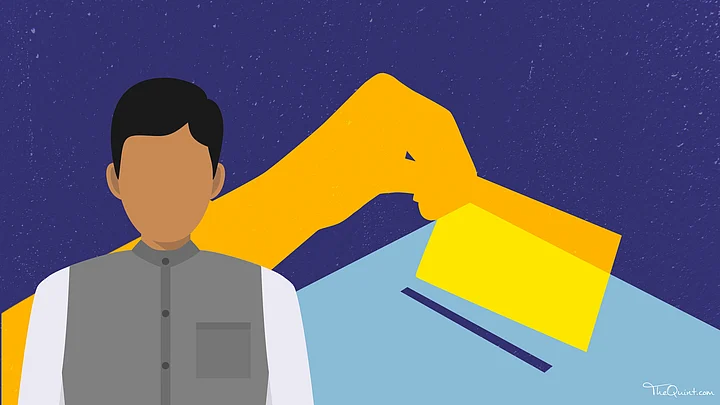The recent uproar by the G-23 over the leadership crisis in Congress has stirred a debate on whether there is a need for constitutional recognition of the internal organisation of political parties as they are the source of maintaining a connection between the representatives in the government or in the opposition and the people who vote them to power. In simple terms, a political party is an organised group possessing common views on governance that aim to further their agenda and policy through political power. They mobilise the electorate, set agendas and indulge in political propagation. However, due to lack of internal democratic functioning, a party’s leadership is often centralised, denying equal opportunity to other members.
A Slew of Efforts
In this context, what needs to be analysed are the factors that hinder inner-party democracy. Some of these factors include institutional weakness, an asymmetric political landscape, and the absence of a credible regulatory framework. For instance, Section 29 A of the Representation of the People Act, 1951, merely mandates the registration of political parties and orders that a political party shall bear true faith and allegiance to the Constitution of India and to the principles of secularism, socialism and democracy and uphold the sovereignty, integrity and unity of India. As a result, there is no legal ground on which elections can be mandated within political parties. Even the Election Commission of India (ECI) cannot ensure that political parties conduct fair and regular internal elections.
In the landmark judgment in Indian National Congress (I) vs Institute of Social Welfare, the Supreme Court had reiterated that the ECI cannot take punitive action against registered parties for violating the principles of inner-party democracy.
Various efforts have been made to bring about some uniformity. The 1999 Law Commission Report recommended the introduction of a regulatory framework for governing the internal structure and inner-party democracy of the political parties. Further, a draft titled Political Parties (Registration and Regulation of Affairs) Act, 2011, was submitted to the Ministry of Law and Justice. It emphasised creating an Executive committee for every political party whose members would be elected by the members of the local committees of the state units of the party, who themselves would elect the office-bearers of the party from amongst themselves, without accepting any nomination.
Looking to the West for Inspiration
Looking to the West, The Basic law of the Federal Republic of Germany (1949) gives constitutional status to political parties. For example, Article 21 of the Basic Law deals with their status, rights, duties, and functions and states that their internal organisation must conform to democratic principles. They must publicly account for their assets and for the sources and use of their funds. Similarly, in the UK, the Conservative Party has the National Conservative Convention as its top body. It has a Central Council and an Executive Committee. In the US, both the Democratic and Republican parties have the National Committee as their top decision-making body.
Seen in this light, the Election Commission needs to come up with reforms focusing on not only regulating the conduct of candidates during elections but also on initiating structural reforms in the functioning of the party as well as in the conduct of the election campaign under its efficient watch.
In this context, inspiration can be drawn from TN Seshan, who, as a Chief Election Commissioner between 1990 and 1996, brought about massive changes and made the ECI an independent institution in spirit. He had brought about changes in the conduct of elections by employing special electoral officers to ensure compliance with the Representation of People Act, 1951, to check for incendiary campaign speeches, voter intimidation, vote-stealing and other tactics often associated with electoral violence.
It remains to be seen whether the Executive of the day would want to bring about some innovative changes in the functioning of political parties as well as whether it would follow in the footsteps of its political ancestors, who had come together to ensure free and fair elections by adopting the Model Code of Conduct (MCC). The MCC was described by former Chief Election Commissioner SY Quraishi as the “biggest contribution” by political parties.
(Abhinav Mehrotra is currently working as a Lecturer at Jindal Global Law School and holds an LL.M. degree in International Human Rights Law. He tweets @AbhinavMehrot13. This is an opinion piece, and the views expressed are the author’s own. The Quint neither endorses nor is responsible for them.)
(At The Quint, we question everything. Play an active role in shaping our journalism by becoming a member today.)
